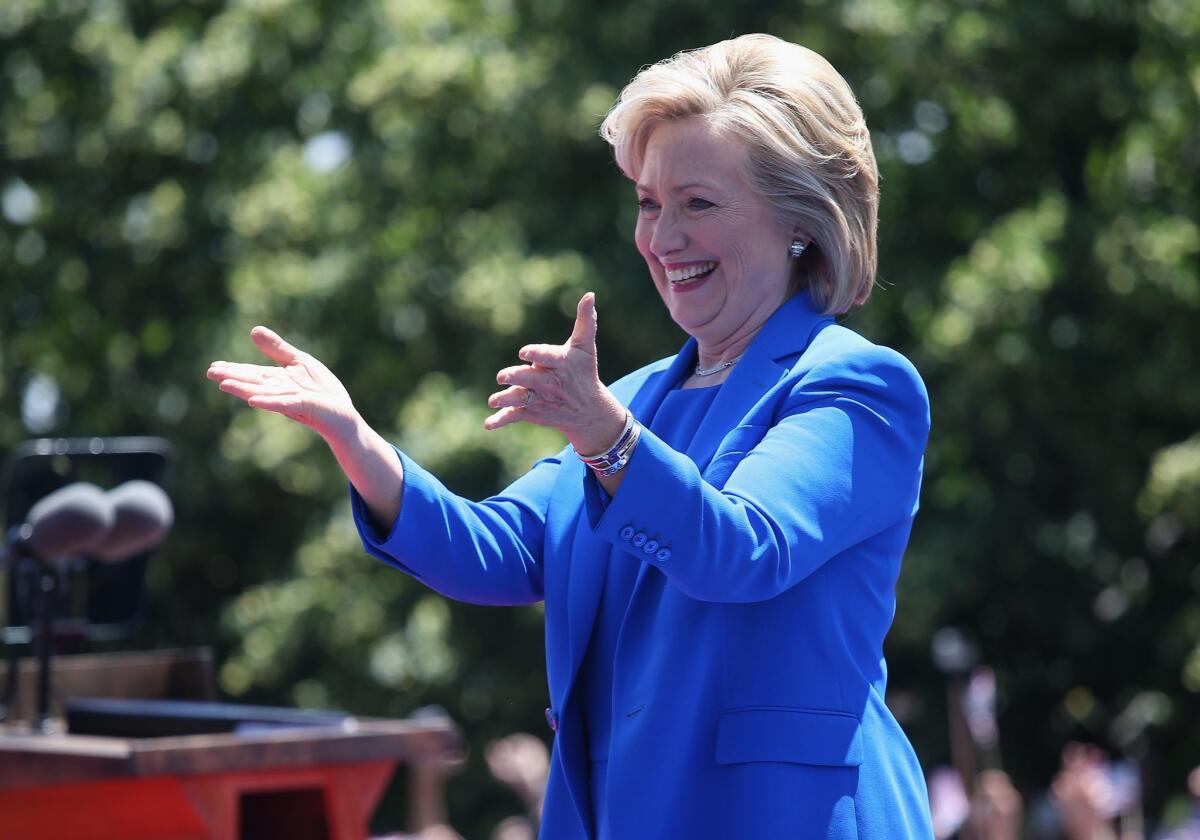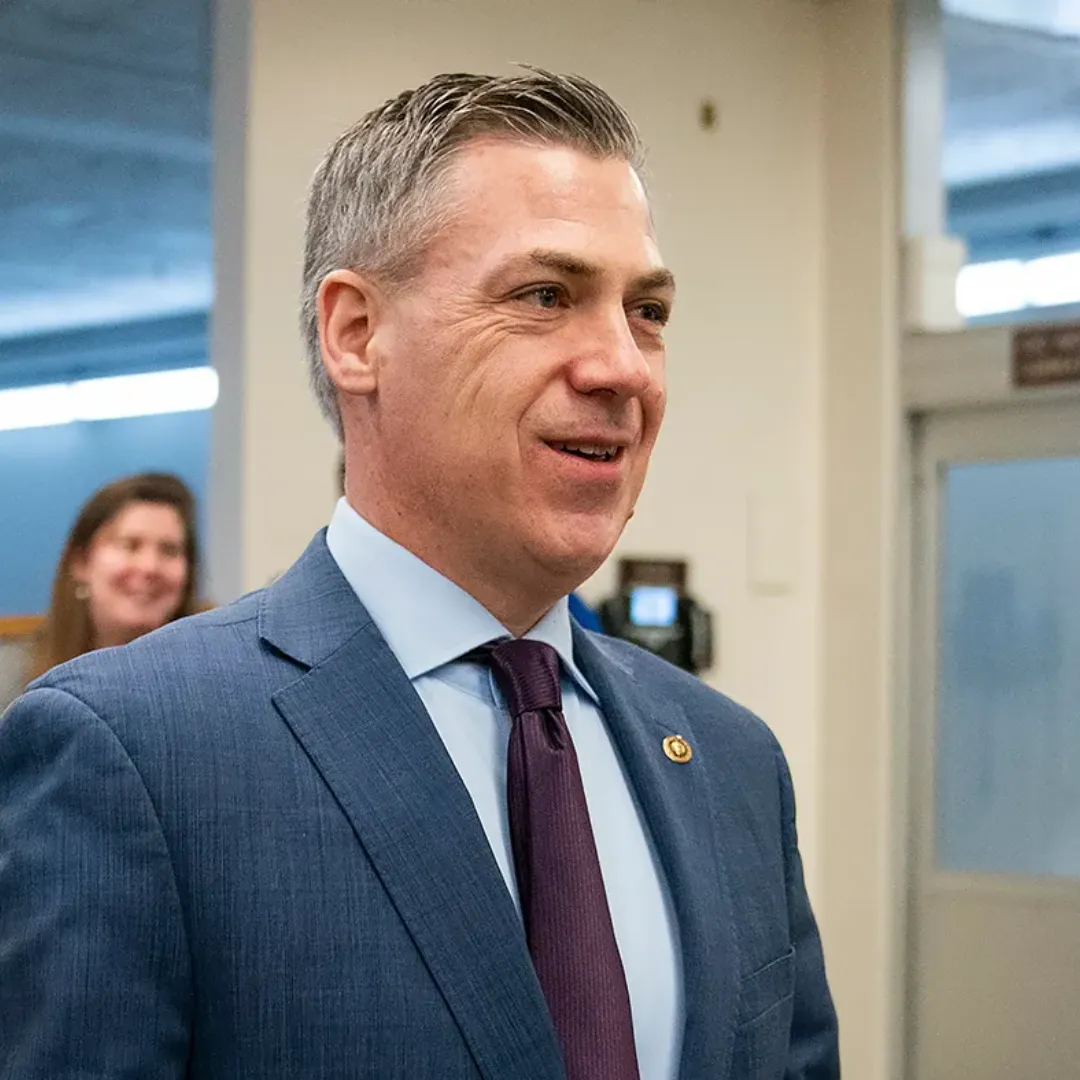Former Secretary of State and Democratic presidential nominee Hillary Clinton has issued an urgent warning to American women, cautioning that a new Republican-backed bill passed by the House of Representatives could severely restrict voting access — particularly for women whose names have changed due to marriage.
Clinton’s message, posted on social media platform X (formerly Twitter), came just hours after the House narrowly passed the Safeguard American Voter Eligibility (SAVE) Act, a piece of legislation that would require individuals to provide documentary proof of citizenship in order to vote in federal elections.
The bill passed in a 220-208 vote, with Republicans united in favor and nearly all Democrats opposing it. Clinton, who has long been an advocate for voting rights and gender equity, wasted no time calling out the legislation’s disproportionate impact on women.
“The House just passed the Republican voter suppression measure that threatens voting access for millions of Americans, including 69 million women whose married names don’t match their birth certificates,” Clinton wrote.
She urged her followers to immediately contact their senators and demand they oppose the bill when it reaches the upper chamber.

The SAVE Act mandates that anyone seeking to vote in a federal election — including races for President, the U.S. Senate, and the House of Representatives — must present proof of U.S. citizenship. While voter ID laws exist in many states, this bill would go further by requiring voters to show documentation such as:
- A certified birth certificate and a government-issued photo ID
- A U.S. passport
- A naturalization certificate
The bill would also require states to audit and purge their voter rolls to remove individuals who cannot provide proper proof of citizenship.
Proponents argue that the bill is necessary to prevent non-citizens from voting — a practice that is already illegal and statistically rare. But voting rights groups and many Democratic lawmakers contend that the real intent is to disenfranchise vulnerable populations, including the elderly, low-income voters, and particularly married women whose legal documents may not all match.
At the heart of Clinton’s warning is a bureaucratic mismatch issue: many women who changed their last names after marriage may find that the name on their birth certificate doesn’t match their current photo ID, especially if they never updated or reissued certain documents after the name change.
“Are you a woman who changed your name when you got married?” Clinton asked in a prior post on Wednesday. “Congress is considering a bill that could make it much harder for you to vote. Call your rep—this is not a drill.”
A graphic shared by Clinton estimates that 69 million women in the U.S. over the age of 15 may have documentation mismatches due to name changes or hyphenations related to marriage.
In some cases, these women may need to track down certified copies of birth certificates, marriage licenses, or pay for legal name-change documents just to meet the SAVE Act’s proof-of-citizenship requirements.
Republicans have framed the bill as a long-overdue correction to loopholes in the voter registration system. House Speaker Mike Johnson (R-La.) defended the bill on Thursday, stating:
“Americans deserve to have faith in their elections. This bill is about safeguarding our democracy and ensuring that only American citizens decide American elections.”
But Democrats argue that the bill addresses a virtually non-existent problem — while creating new ones.
“Let’s be clear: non-citizen voting is already illegal and incredibly rare,” said Rep. Alexandria Ocasio-Cortez (D-N.Y.). “What this bill does is throw up bureaucratic roadblocks for millions of eligible voters, disproportionately women, seniors, and the working class.”
Rep. Ayanna Pressley (D-Mass.) went further, calling the bill “Jim Crow in a new outfit.”
Another barrier raised by opponents of the SAVE Act is the financial burden of gathering proper documentation. While birth certificates and passports can serve as proof of citizenship, neither are free.
A U.S. passport costs over $100 to obtain or renew. A certified copy of a birth certificate can cost anywhere from $10 to $45, depending on the state. And in many cases, voters may need to take time off work, navigate complex bureaucracies, or face long delays to receive documents.
These costs and barriers are not insignificant — particularly for low-income Americans, rural residents, or people who are disabled or elderly.
“Voting is a constitutional right — not a privilege for people who can afford to dig up paperwork,” said Sen. Raphael Warnock (D-Ga.), who vowed to fight the bill in the Senate.
If passed into law, the SAVE Act would likely face immediate legal challenges. Civil rights groups including the ACLU, NAACP Legal Defense Fund, and the League of Women Voters have already signaled that they are prepared to sue.
“This is a solution in search of a problem,” said Dale Ho, Director of the ACLU’s Voting Rights Project. “It’s plainly unconstitutional to create barriers that disproportionately affect one gender, class, or ethnic group.”
The National Women’s Law Center issued a statement declaring that the bill could violate the Voting Rights Act of 1965, and that it places an unfair burden on women, particularly those from communities of color, who are more likely to experience documentation mismatches.
The SAVE Act is the latest in a series of Republican-led efforts to tighten voting regulations in the wake of the 2020 and 2024 elections — both of which saw record-high turnout and allegations (unsubstantiated) of widespread voter fraud.
In the past three years, over 40 states have introduced or passed laws restricting mail-in voting, limiting early voting, and expanding voter ID requirements. Civil rights advocates say these measures disproportionately impact communities of color, young people, and women.
Clinton warned that the SAVE Act could become the federal centerpiece of a larger, more insidious campaign to suppress the vote. “This isn’t just one bill. It’s part of a coordinated strategy to make it harder for the people who are changing this country — women, young people, and voters of color — to have their voices heard.”
The bill now moves to the Senate, where Democrats hold a narrow majority. While it is unlikely to pass in its current form, especially with opposition from key Democratic senators, activists warn that it still represents a serious threat.
Several 2026 Senate races are expected to be fiercely contested, and some moderates may feel pressure to support parts of the bill under the guise of “election integrity.”
Voting rights organizations are already mobilizing grassroots opposition and urging citizens to contact their senators. “The right to vote is under attack,” said LaTosha Brown, co-founder of Black Voters Matter. “And we’re not going to let it happen quietly. We’re going to organize, we’re going to march, and we’re going to fight.”
As the fight over the SAVE Act intensifies, Hillary Clinton’s warning serves as a rallying cry — particularly to women, who comprise more than half of the electorate and who have historically been at the forefront of civil rights struggles.
“This isn’t just about elections,” Clinton said in a follow-up post. “It’s about democracy. It’s about power. And it’s about whether we let cynical politicians rewrite the rules to silence millions of us.”
With the Senate vote looming, one thing is clear: the battle over who gets to vote in America is far from over.







